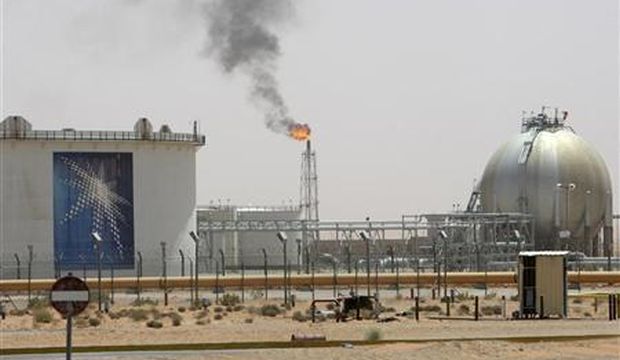
A gas flame is seen in the desert near the Khurais oilfield, about 99 miles (160 kilometers) from Riyadh, in Saudi Arabia, on June 23, 2008. (Reuters/Ali Jarekji)
Speaking to Asharq Al-Awsat, Raja Al-Marzouqi, the IMF’s departmental adviser on the Middle East and Central Asia, said the organization forecasts oil prices to rise to 57 dollars a barrel by next year, 65 dollars a barrel in 2016, and eventually 72 dollars in 2019.
The organization expects modest growth from the Eurozone and the global economy will help push up the prices in the coming years, but that the continued ample supplies of shale oil from the US would act as a counterbalance, keeping the price rise a modest one.
Oil prices have fallen more than 60 percent from highs of above 100 dollars per barrel in 2014 to hover at around 50 dollars per barrel this year.
Marzouqi said the IMF put the recent price slump down to “core changes to the makeup of global energy markets,” in addition to a supply surplus due to higher-than-expected production levels in some countries and the shale oil production boom in the US.
Gulf oil producers had lost 300 billion dollars as a result of the slump, he said, but growth in these countries would not be significantly affected as a result due to their healthy cash reserves.
However, Marzouqi added that in light of the slump these countries needed to reexamine their oil policies and reduce government spending, in addition to improving the investment climate in order to draw in other sources of income and maintain growth levels.
Speaking at a conference in the Saudi capital Riyadh, Tim Callen, the IMF’s mission chief in the country, said Gulf countries also needed to diversify their sources of income in light of the price slump.
Cooperation between the private and public sectors were necessary in this regard, he said, especially in the education sector, in order to better prepare Saudi workers for jobs in a variety of sectors.
